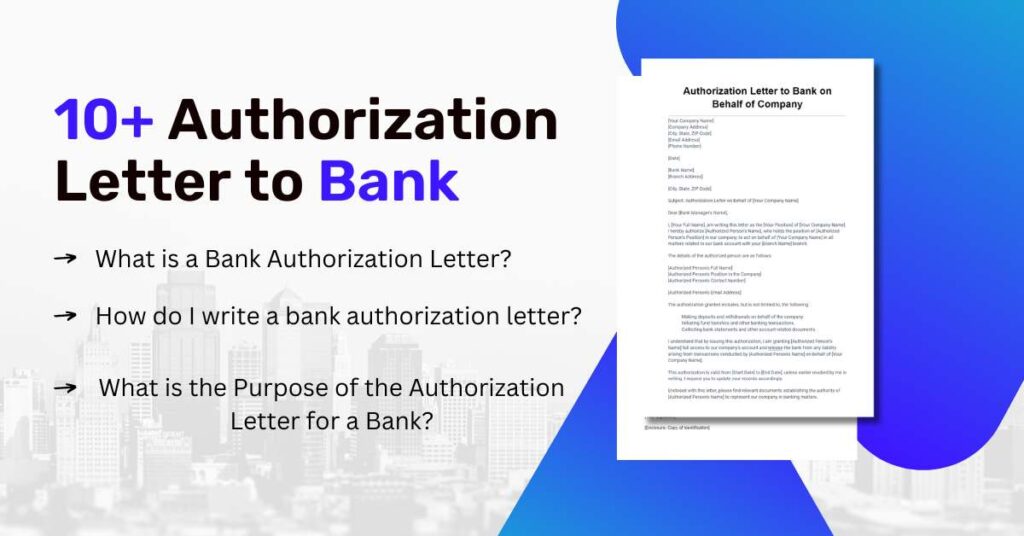Introduction to Authorization Letter to Claim
In the realm of paperwork and transactions, an Authorization Letter to Claim stands as a powerful tool. This legal document empowers individuals to delegate the authority to someone else, allowing them to claim specific items, documents, or packages on the authorizer’s behalf. Let’s delve into the key components and nuances of crafting a comprehensive Authorization Letter to Claim.
Key Components of an Authorization Letter:
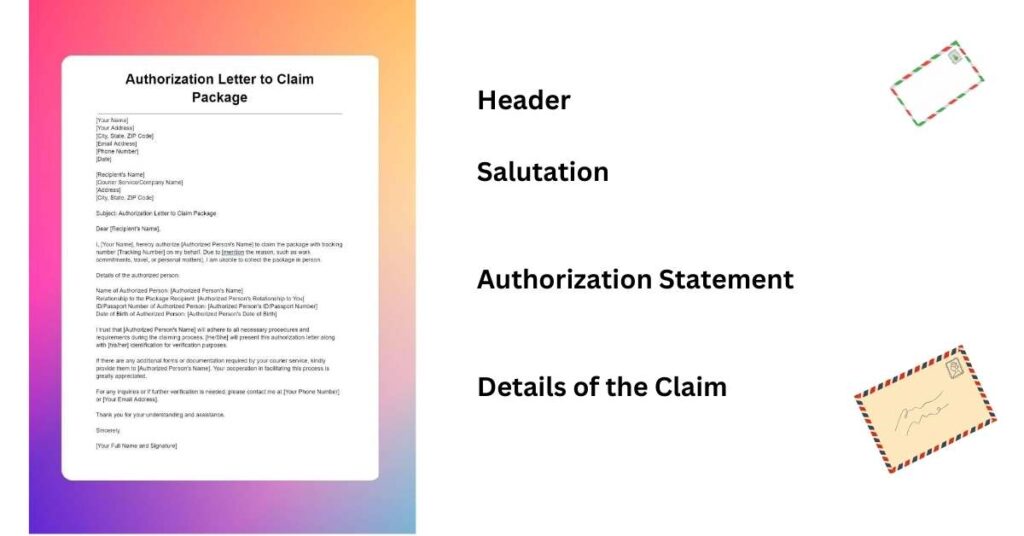
Header:
Ensuring a smooth claim process begins with a well-defined header. This section, including the issuance date and recipient’s details, lays the groundwork for a hassle-free transaction.
Salutation:
Setting the right tone is paramount. A formal salutation respectfully addresses the recipient, creating a professional atmosphere for the letter’s content.
Authorization Statement:
At the heart of the letter lies a crystal-clear authorization statement. It explicitly names the authorized person and outlines the purpose for which they are granted authority—be it claiming documents from educational institutions or retrieving packages from courier services.
Details of the Claim:
To avoid any hiccups, the letter provides a detailed description of the item or document being claimed, accompanied by relevant reference numbers or identifiers. This precision ensures the authorized person can accurately identify and claim the intended item.
How to Write an Authorization Letter to Claim?
Identify the Need for Authorization:
Understanding why authorization is necessary is the first step. Whether it’s due to time constraints or physical absence, clarifying the need helps craft a purposeful letter.
Gather Necessary Information:
Smooth transactions require thorough preparation. Collecting all relevant details about the claim, from names to reference numbers, ensures a seamless process.
Format and Structure:
A formal structure and professional tone are crucial. The use of clear and concise language leaves no room for misinterpretation, enhancing the effectiveness of the authorization.
Review and Sign:
Before finalization, a thorough review guarantees accuracy and completeness. The authorizer’s signature adds the legal touch, making the letter binding.
Examples of Authorization Letters to Claim:
Authorization Letter to Claim
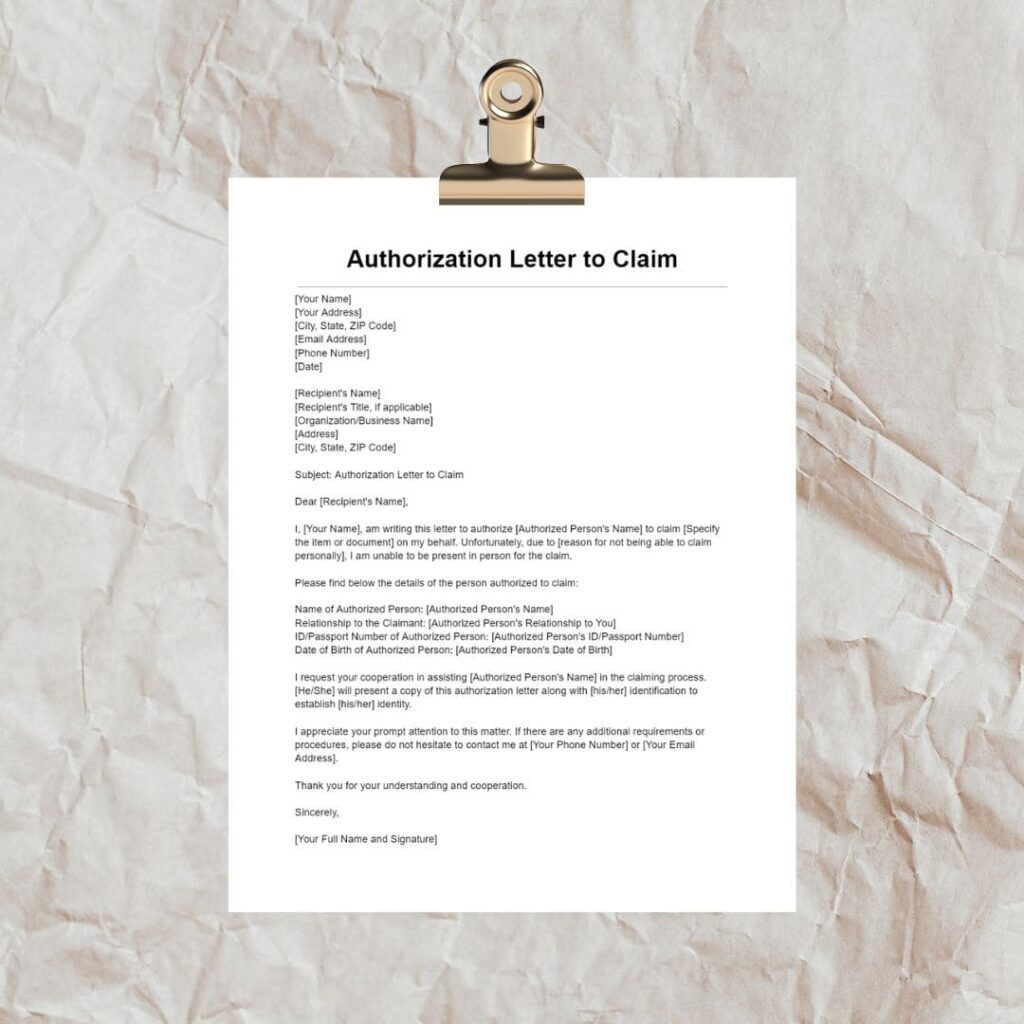
Sample Authorization Letter for Claim
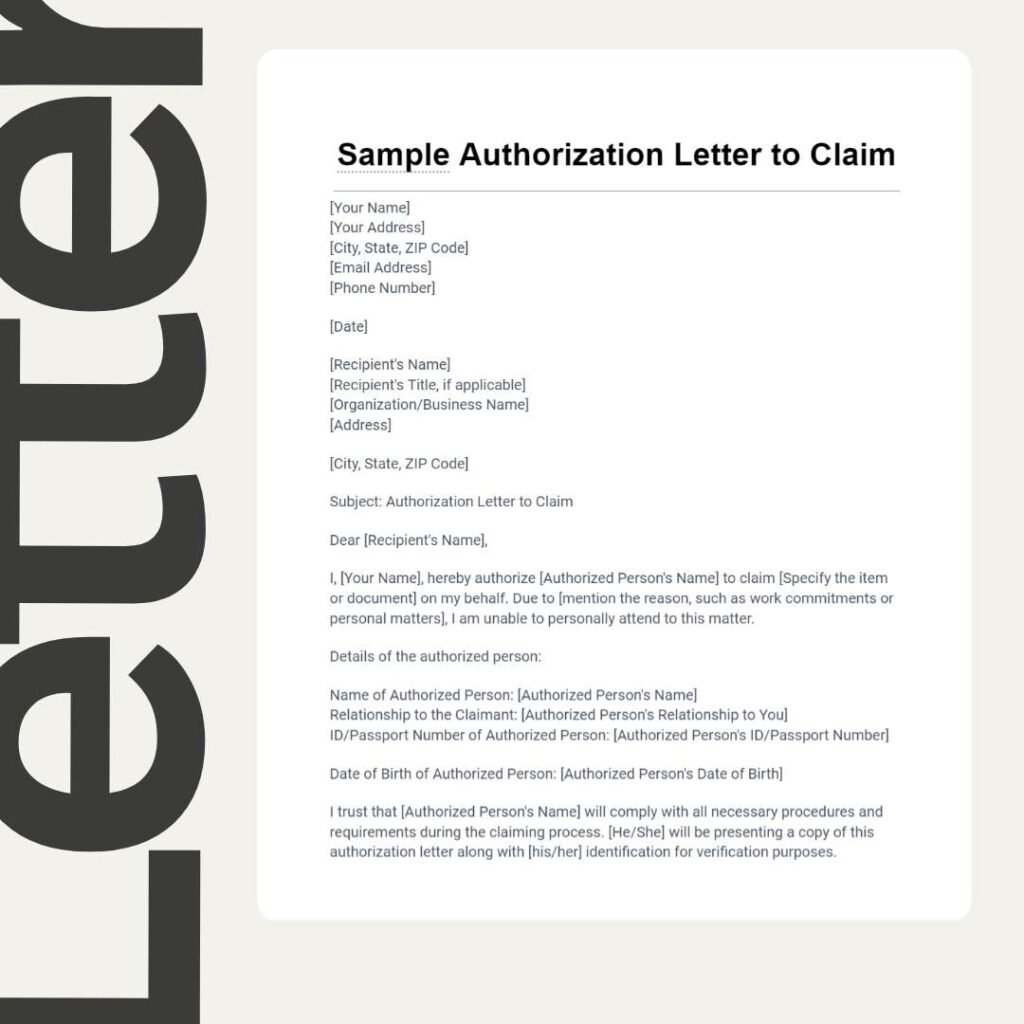
Authorization Letter to Claim Check
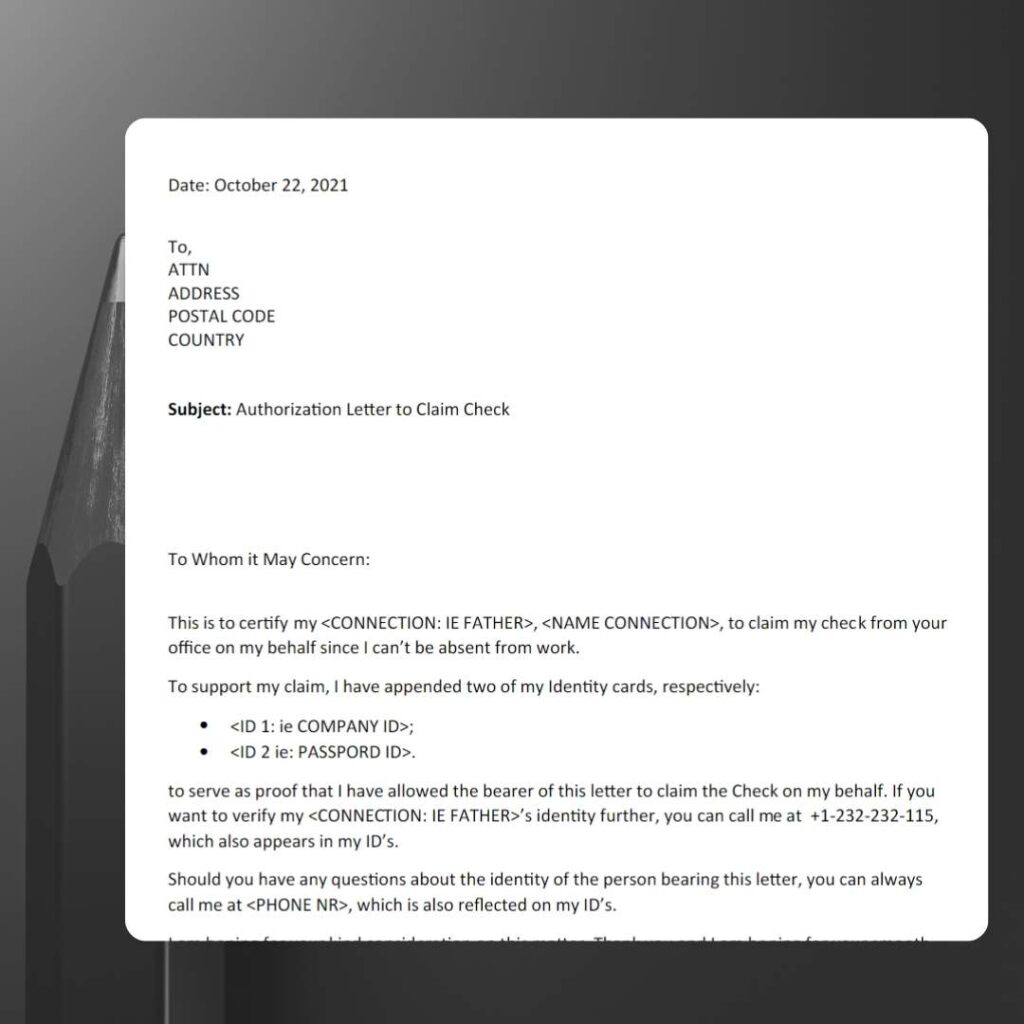
Authorization Letter to claim Birth Certificate
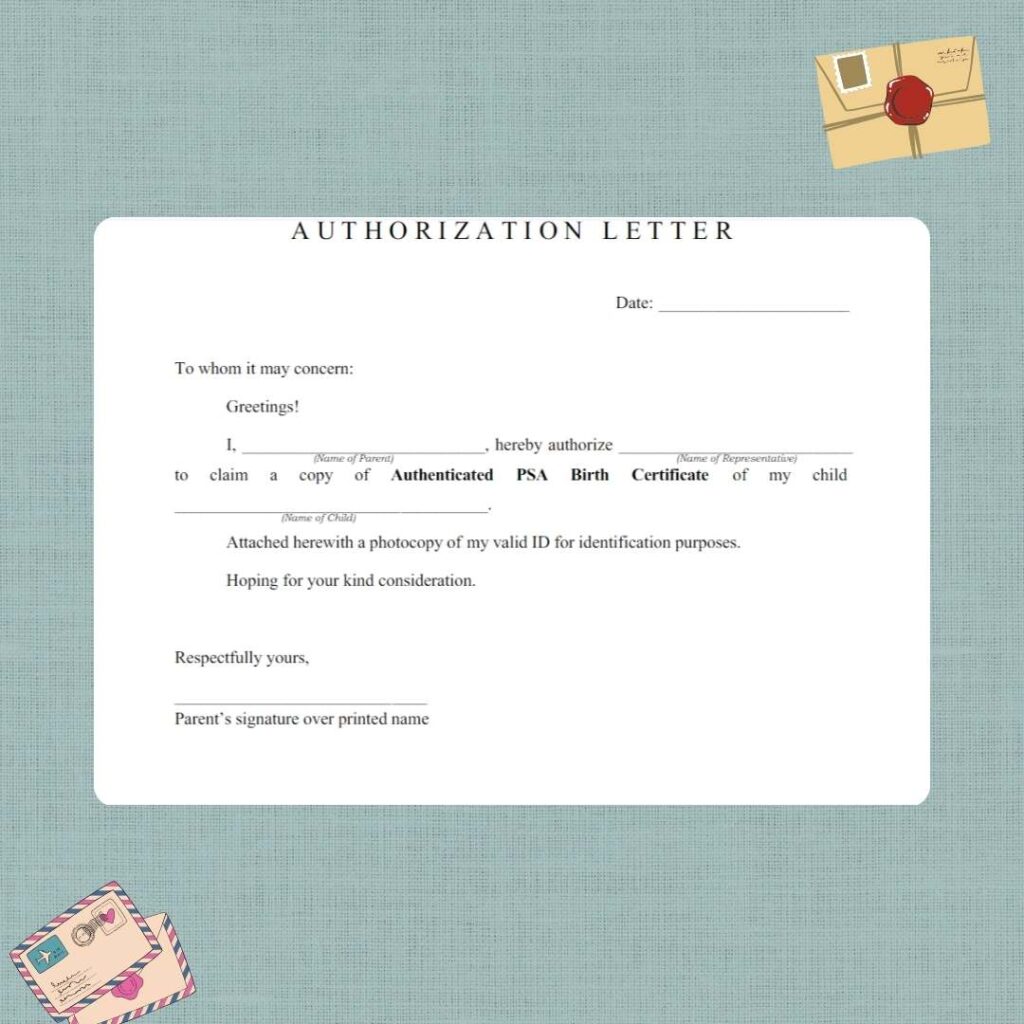
Authorization Letter to Claim Documents in School
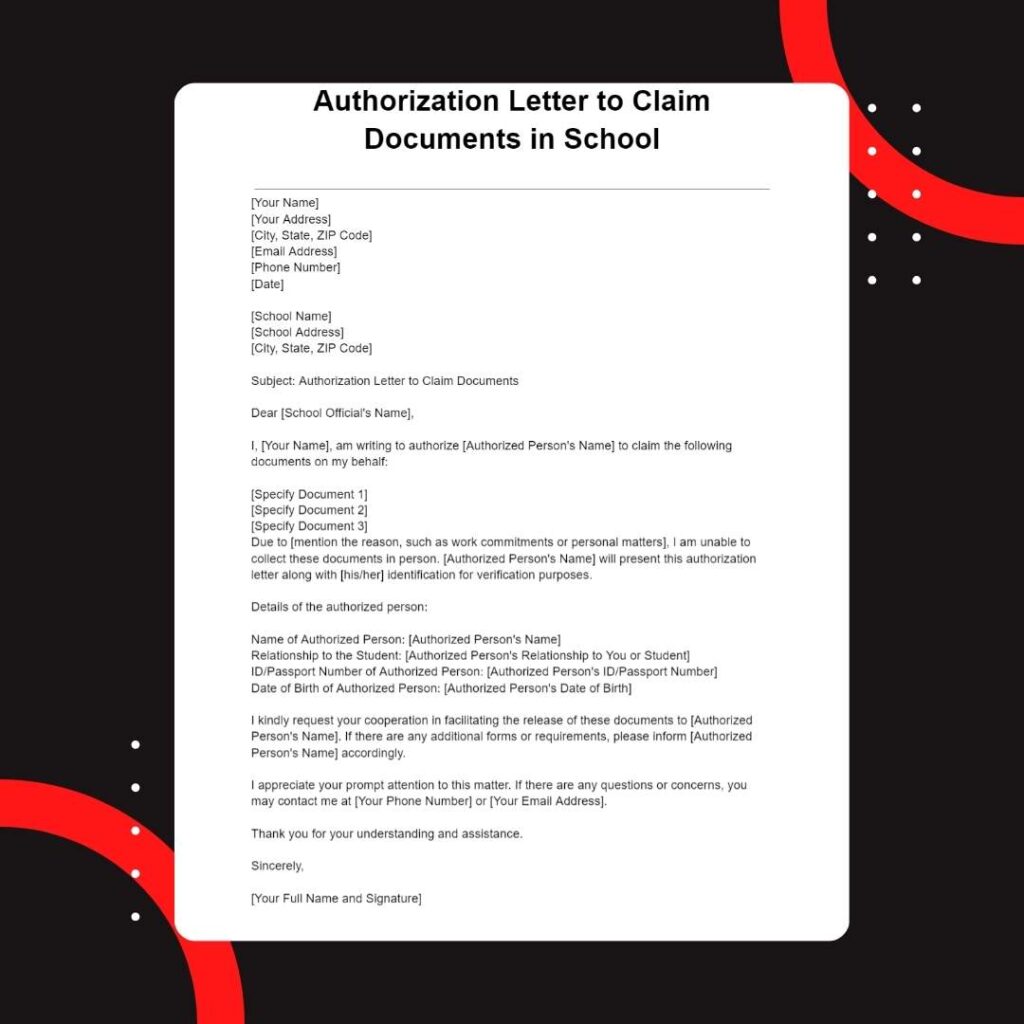
Authorization Letter to Claim on My Behalf
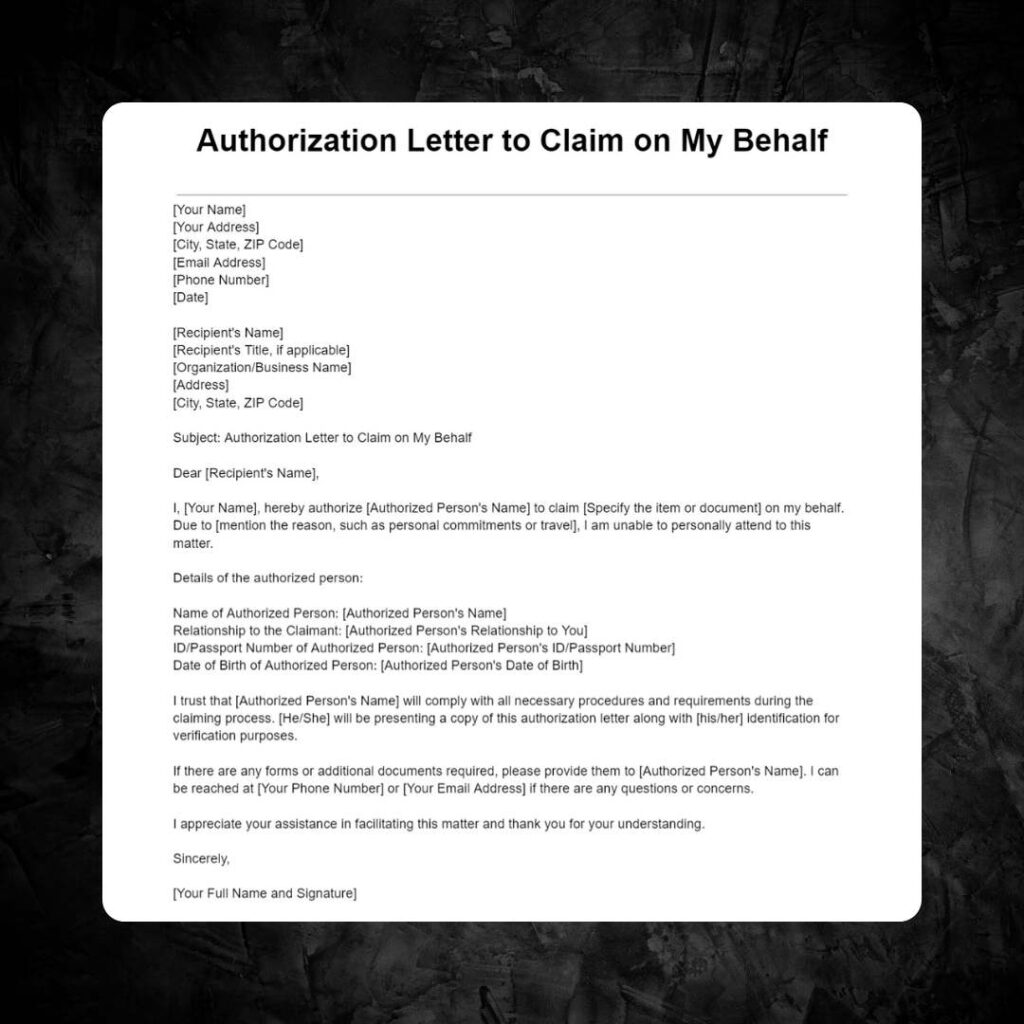
Authorization Letter to Claim Back Pay
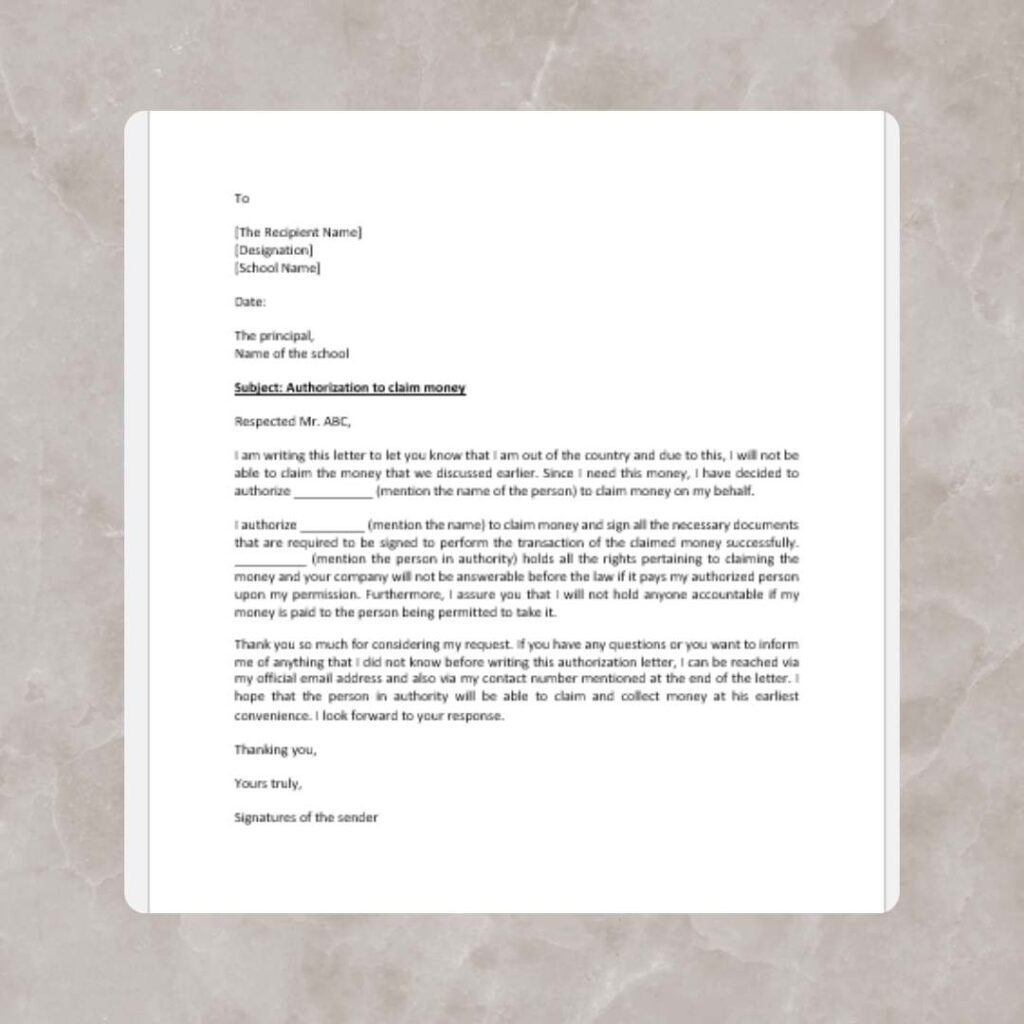
Authorization Letter to Claim Car from Repair
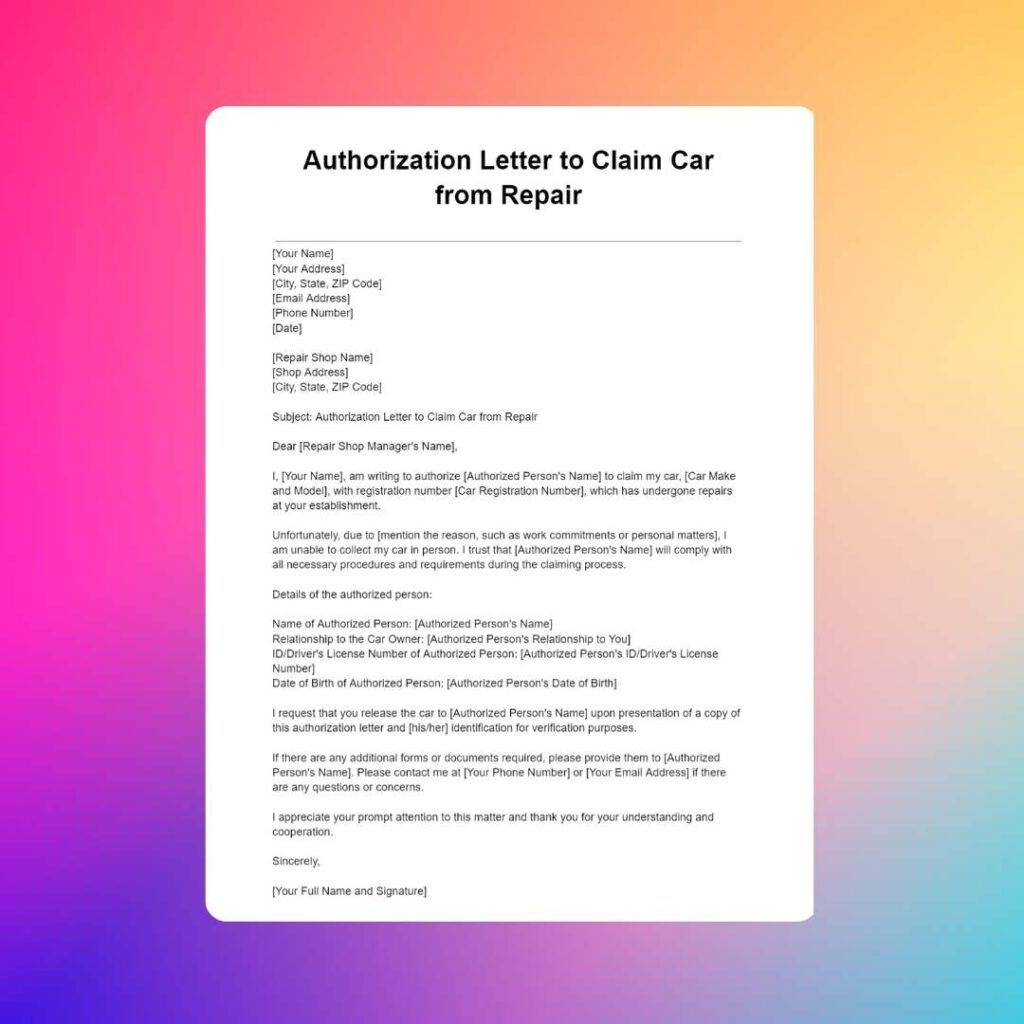
Authorization Letter to Claim Refund Money
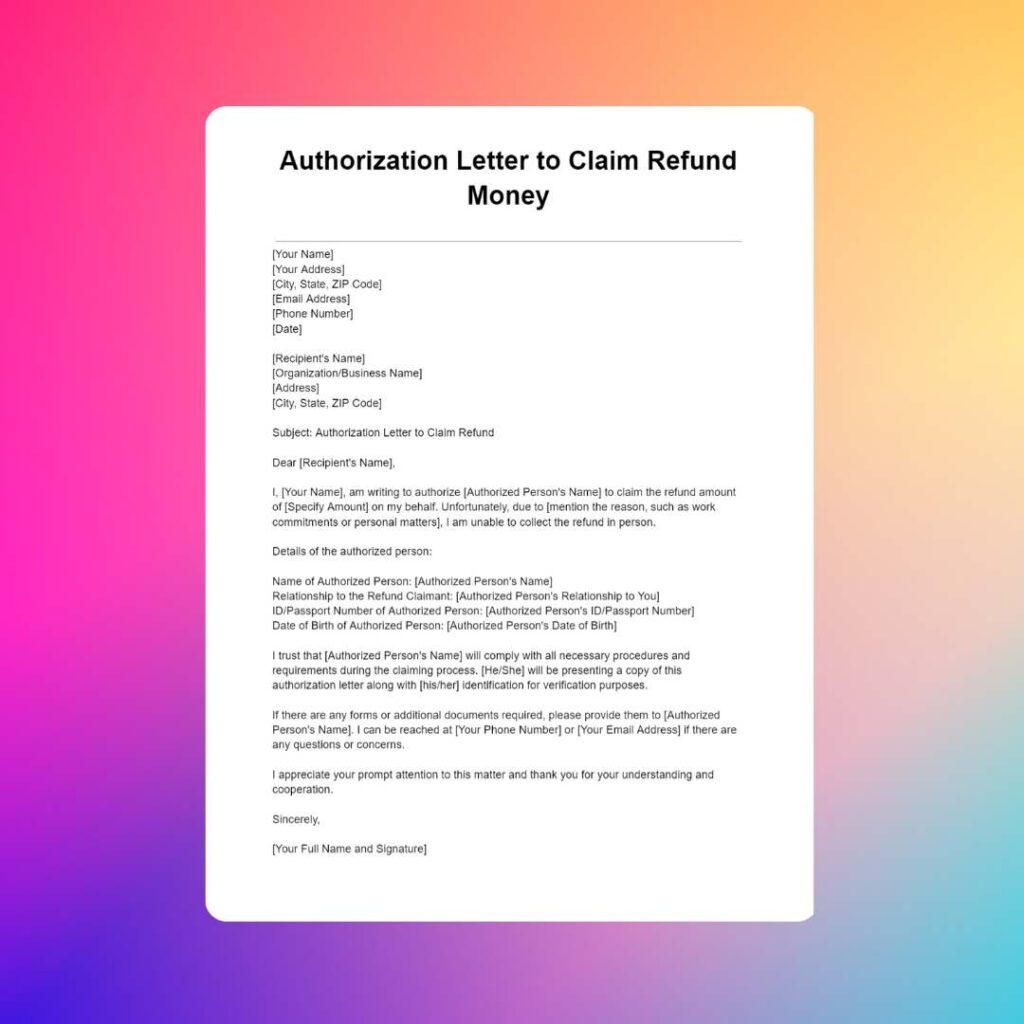
Formal Authorization Letter to Claim
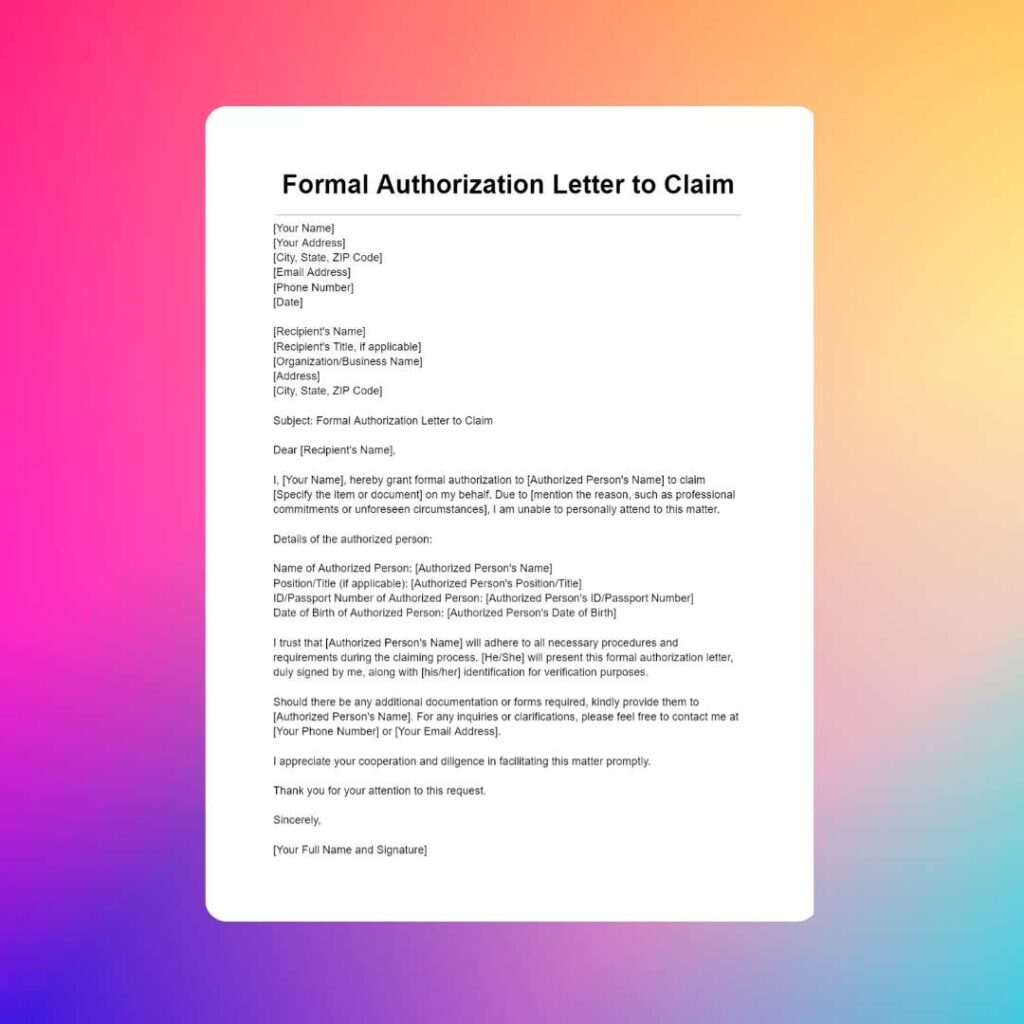
Short Authorization Letter to Claim
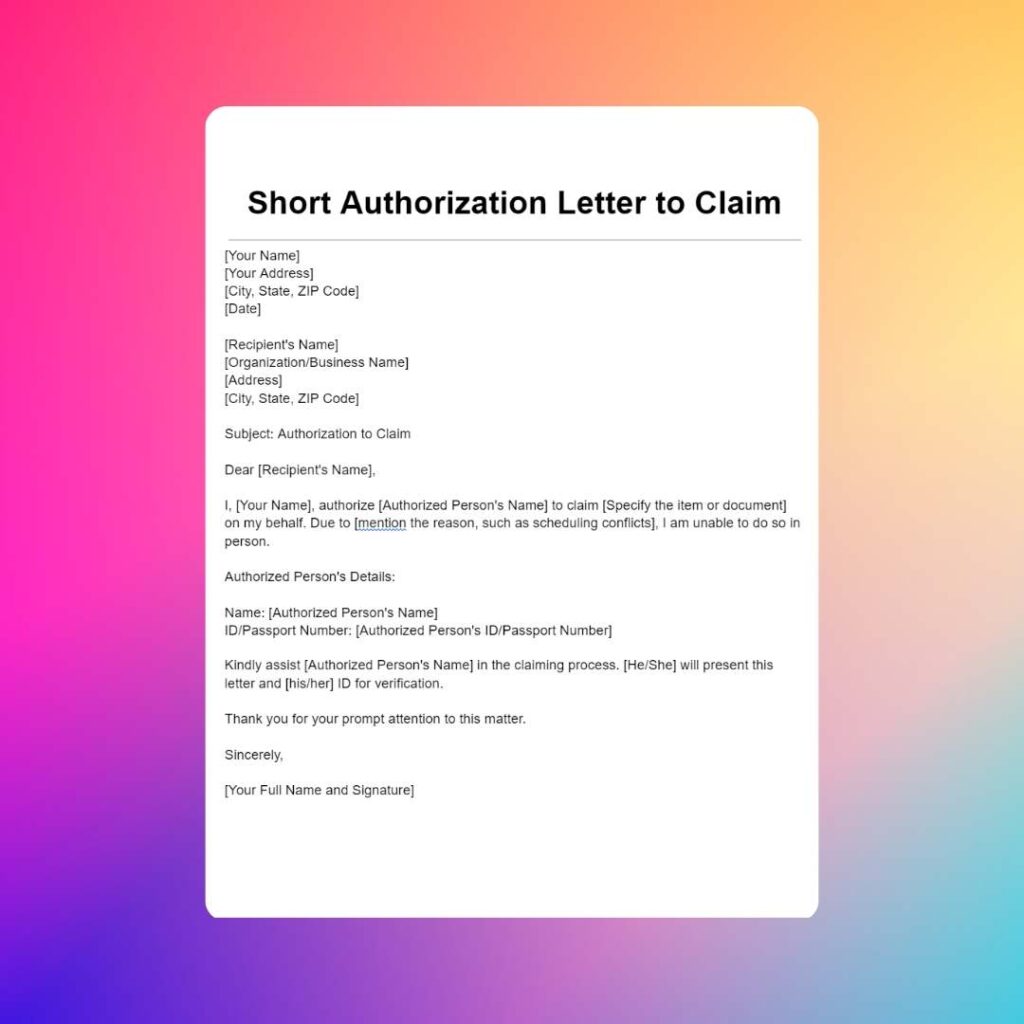
Authorization Letter to Claim with Reason
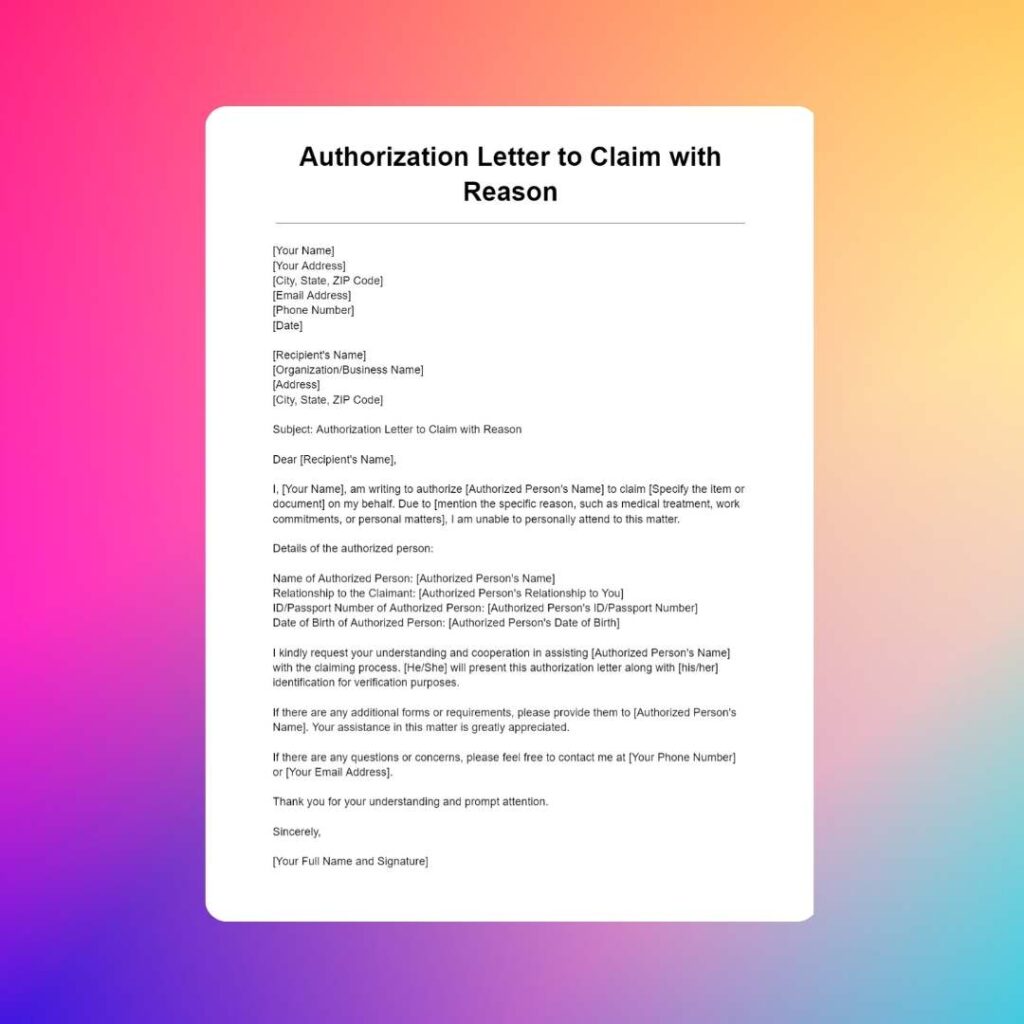
Authorization Letter to Claim Certified True Copy of Title
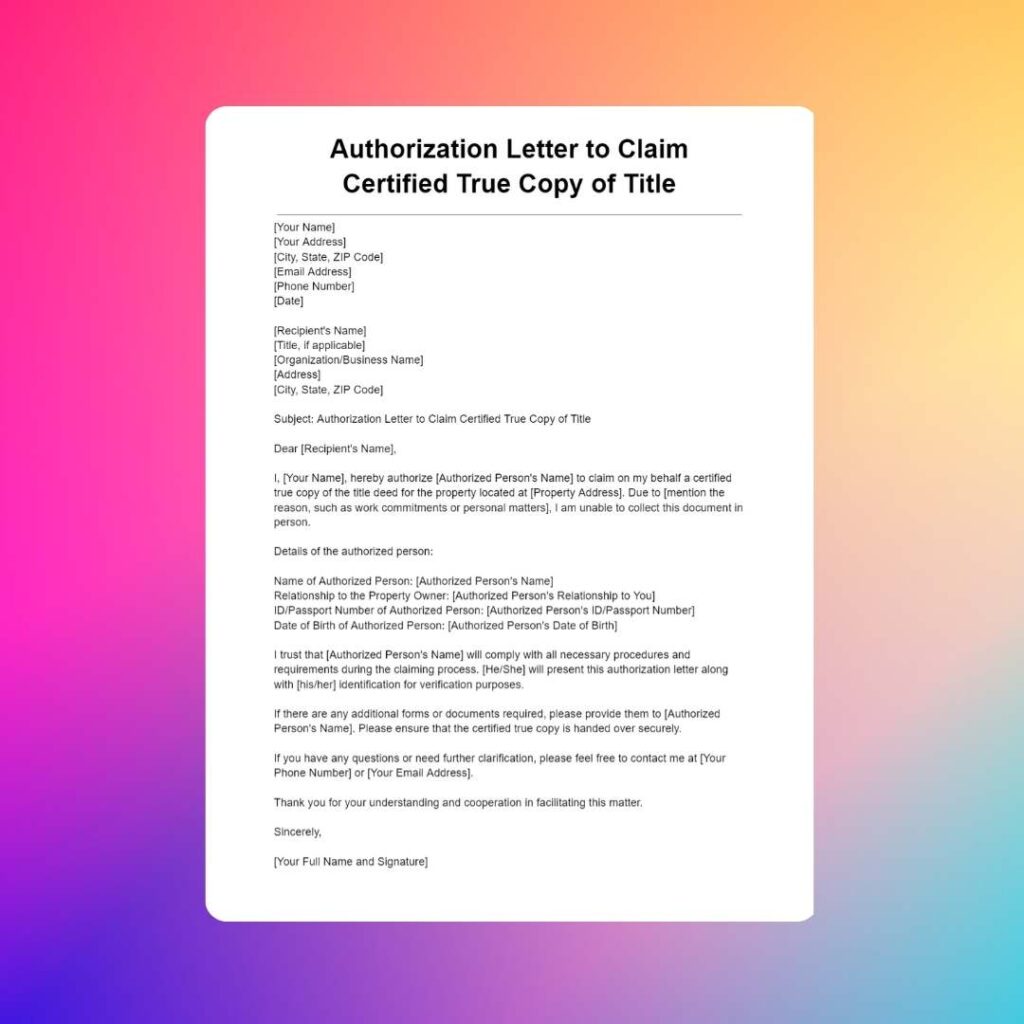
Sample of Authorization Letter to Claim Money
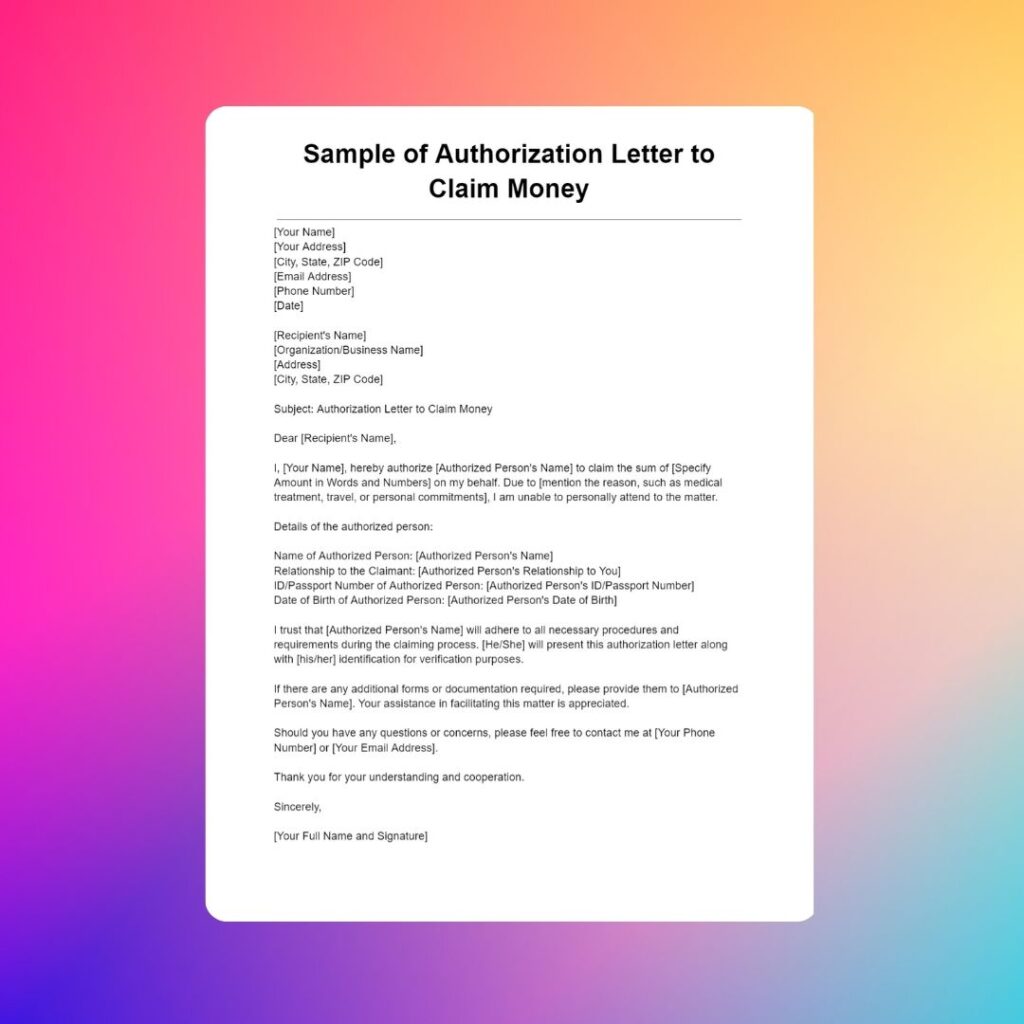
Authorization Letter to Claim Package
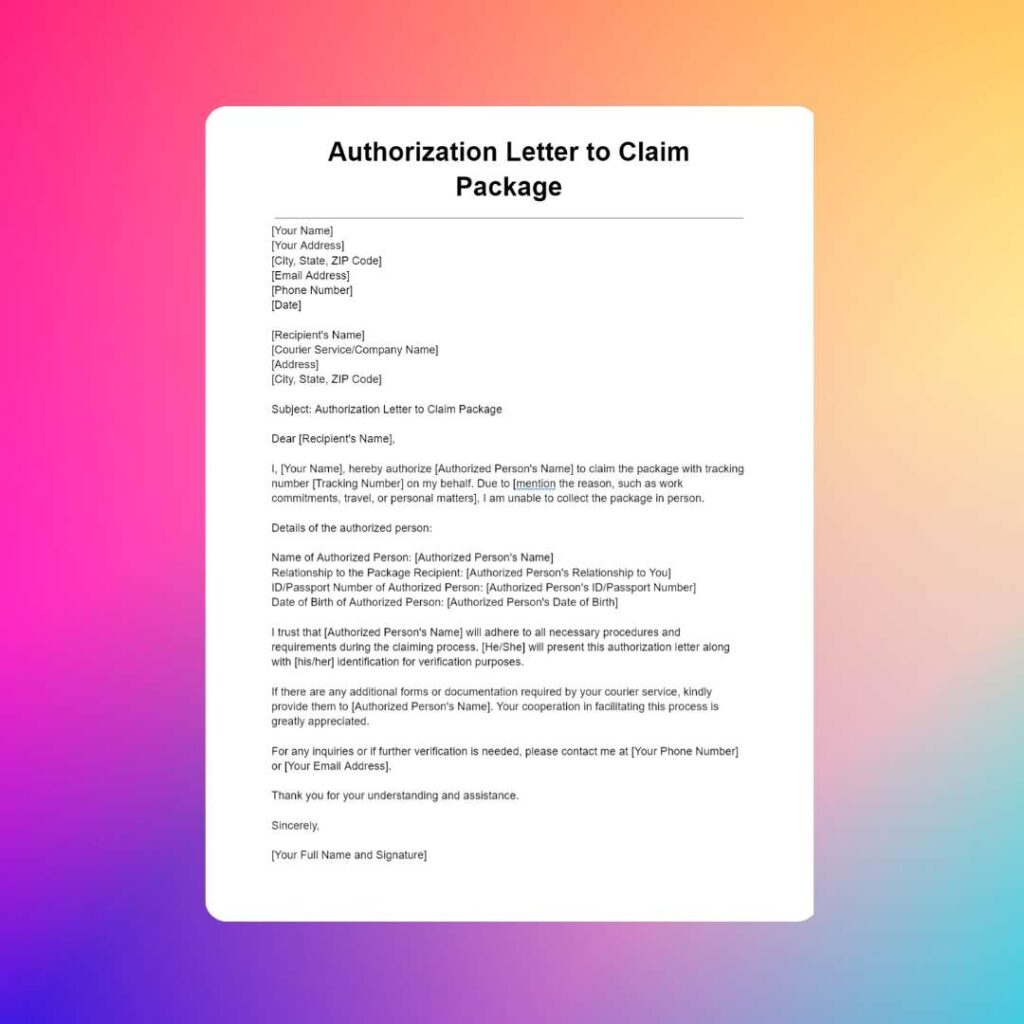
Legal Considerations:
Understanding the legal implications of authorization letters is paramount. These legally binding documents must be used within their intended scope and limitations to ensure validity.
Frequently Asked Questions (FAQs):
Can an Authorization Letter Expire?
Authorization letters typically have an expiration date, ensuring that the authority granted is only valid for a specified period.
Can Anyone Be Authorized to Claim on Your Behalf?
The authorizer has the discretion to choose the authorized person, be it a family member, friend, or colleague, depending on the nature of the claim.
What Happens if the Authorization Letter is Misused?
Misuse of an authorization letter may have legal consequences. Emphasize the importance of using the authorization strictly for its intended purpose.
Tips for Writing an Effective Authorization Letter to Claim:
Be Specific and Detailed:
Provide all necessary details to avoid confusion during the claiming process.
Provide Contact Information:
Include contact information for both the authorizer and the authorized person for any queries.
Ensure Legibility and Accuracy:
A well-presented, legible letter reduces the likelihood of errors during the claiming process.
Keep a Copy for Reference:
Advise the authorizer to retain a copy of the authorization letter for their records.
Conclusion:
In conclusion, an Authorization Letter to Claim is more than a mere formality; it’s a valuable instrument for responsible delegation. Whether for retrieving documents, collecting packages, or handling financial transactions, these letters provide a secure and formal way to empower others to act on our behalf. Mastering the art of crafting these letters ensures a smooth and effective authorization process, demonstrating responsible delegation in our daily affairs.


